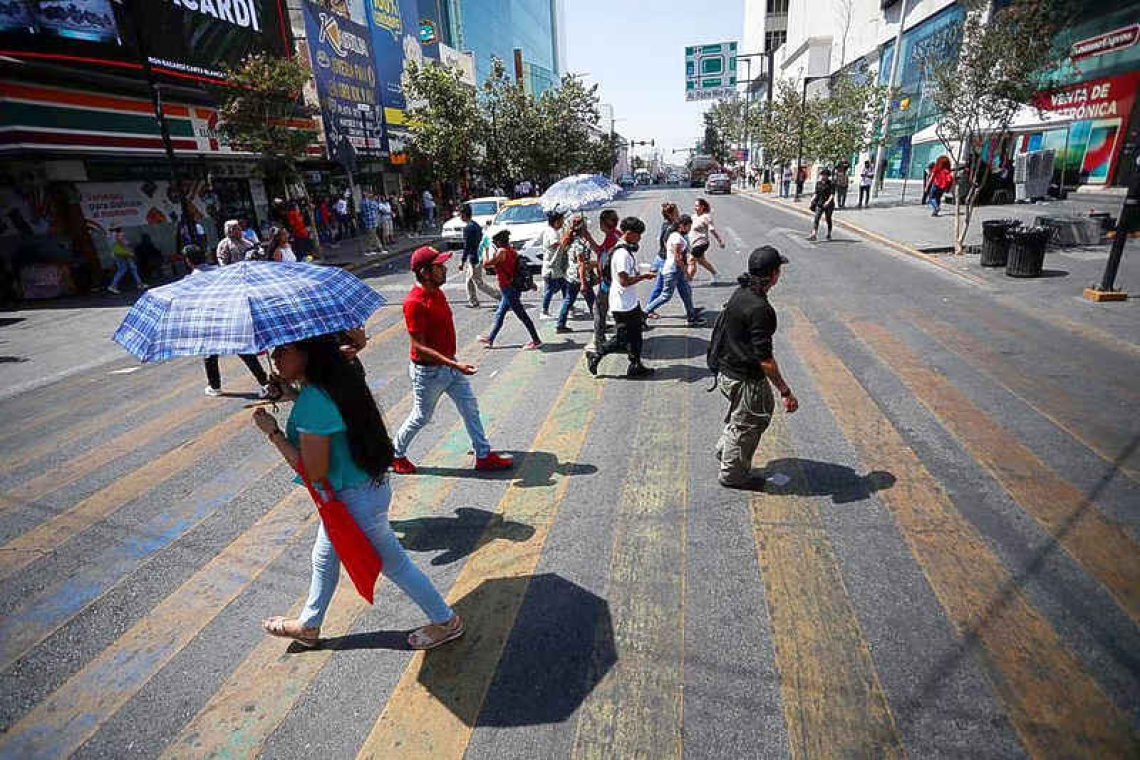People walk across a street as temperatures rise during an unusual heat wave, in Monterrey, Mexico, on June 14. File photo credit Reuters/Daniel Becerril.
HAVANA, Cuba--Extreme weather is wreaking havoc across Latin America, racking up billions worth of damage and unleashing a vicious cycle that leads to higher demand for fossil fuels and more climate change, the World Meteorological Organization (WMO) said on Wednesday.
Temperatures have warmed an average 0.2 degrees Celsius per decade over the past 30 years – the highest rate on record, according to the State of the Climate in Latin America and the Caribbean 2022 report.
As temperatures rise, extreme weather events become more common, with often unexpected consequences that stoke climate change, the report said.
"Prolonged drought led to a drop in hydroelectricity production in large parts of South America, prompting an upsurge in demand for fossil fuels in a region with major untapped potential for renewable energy," the report said.
Wildfires across swaths of Latin America in 2022, fueled by dry soils and extreme heat, led carbon dioxide emissions to spike to their highest level in 20 years, driving temperatures up and further raising the risk for disaster, the report noted.
“Many of the extreme events were influenced by the long-running La Niña but also bore the hallmark of human-induced climate change," said WMO Secretary General Petteri Taalas.
“The newly arrived El Niño will turn up the heat and bring with it more extreme weather."
Drought and storms made up the bulk of US $9 billion worth of economic damages reported in 2022 to Centre for Research on the Epidemiology of Disasters (CRED) Emergency Events Database EM-DAT.
The WMI report comes amid the Convention on Environment and Development held in Havana, Cuba, and organised by the G77 group of developing nations, which includes China.
Cuba's Environment Minister Elba Rosa Perez said during the inaugural session of the convention on Tuesday the situation has pushed many developing countries to the limit.
"We are facing increasingly strong impacts from climate change, but the decisions adopted in climate negotiations for the implementation of the Paris Agreement do not advance at the same rate," she said.
The 2015 Paris Agreement set a goal of keeping warming below 1.5 degrees Celsius above pre-industrial levels, but scientists and activists warn more action is needed to avoid the worst impacts of climate change. ~ Reuters ~







